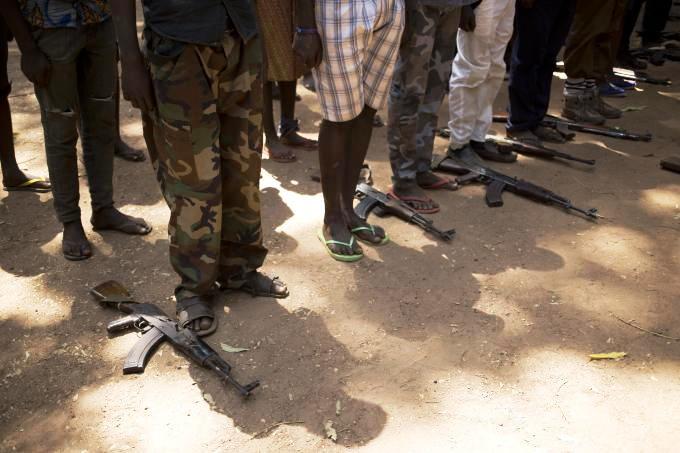Daniel Comboni
Missionnaires Comboniens
Zone institutionnelle
D’autres liens
Newsletter
Friday, March 2, 2018
More than 300 children, 87 of them girls, were released by armed groups in South Sudan today, beginning a process that is expected to see at least 700 children freed in the coming weeks. It was the first release of children by any armed groups in South Sudan in more than year. “This is a crucial step in achieving our ultimate goal of having all of the thousands of children still in the ranks of armed groups reunited with their families,” said Mahimbo Mdoe, UNICEF’s Representative in South Sudan. “It is the largest release of children in nearly three years and it is vital that negotiations continue so there are many more days like this”. [Comboni Missionaries]
Some 215 children were released by the South Sudan National Liberation Movement (SSNLM), which in 2016 signed a peace agreement with the Government and is now integrating its ranks into the national army.
Additionally, 96 children were released from the ranks of the Sudan People’s Liberation Army-In Opposition (SPLA-IO). An upsurge of fighting in the region in July 2016 stalled the progress that had been made in securing the release of children associated with the forces, but this release is a positive step forward.
According to UNICEF, the children have been formally disarmed and provided with civilian clothes. Medical screenings will be carried out, and children will receive counselling and psychosocial support as part of the reintegration programme, which is implemented by UNICEF and partners.
Those with relatives in the area will be reunited with their families, while others will be placed in interim care centres until their families can be traced. When children return home, their families will be provided with three months’ worth of food assistance to support their initial reintegration. The children will then be provided with vocational training aimed at improving household income and food security. Being able to support themselves economically can be a key factor in children becoming associated with armed groups. In addition to services related to livelihoods, UNICEF and partners will ensure the released children have access to age-specific education services in schools and accelerated learning centres.
“Not all children are forcibly recruited. Many joined armed groups because they feel they had no other option”, said Mdoe. “Our priority for this group – and for children across South Sudan – is to provide the support they need so they are able to see a more promising future”.
An estimated 19,000 children continue to serve in the ranks of armed forces and groups more than four years after conflict erupted in December 2013.
Meanwhile, Mgr. Barani Eduardo Hiiboro Kussala, Bishop of the diocese of Tombura-Yambio and President of the Bishops’ Conference of Sudan said that the Catholic community has to pray for peace and reconciliation. “Our country needs unity, to guide us to healing through authentic repentance. Unity does not mean a conflict-free society, but rather a society in which all people can enjoy freedom and experience love and compassion”.
“In dark times like these, the answers are not easy, but we can comfort ourselves by knowing that even the most obscure point can be illuminated by a single light, and even the most terrible despair can be illuminated by a single ray of hope. Forgiveness requires practice, honesty, openness and a willingness to try. It is not easy. The only way to experience healing and peace is to forgive. If we are not able to forgive, we remain locked up in our grief and shut out of the possibility of experiencing healing and freedom, excluded from the possibility of being at peace”, the Bishop points out. [Comboni Missionaries]




